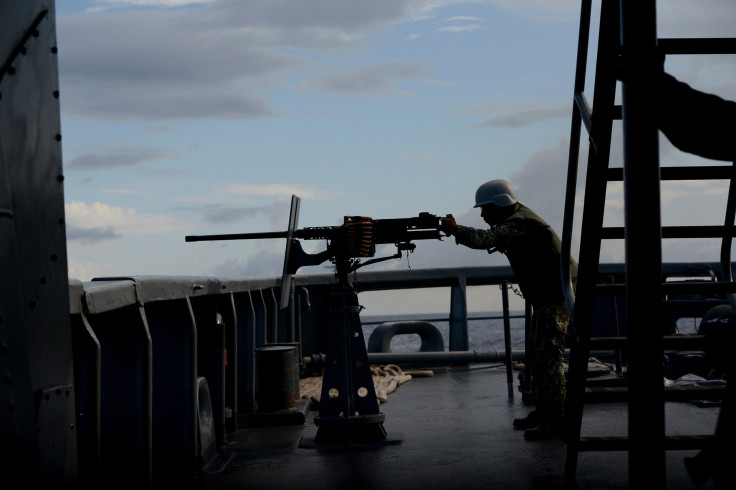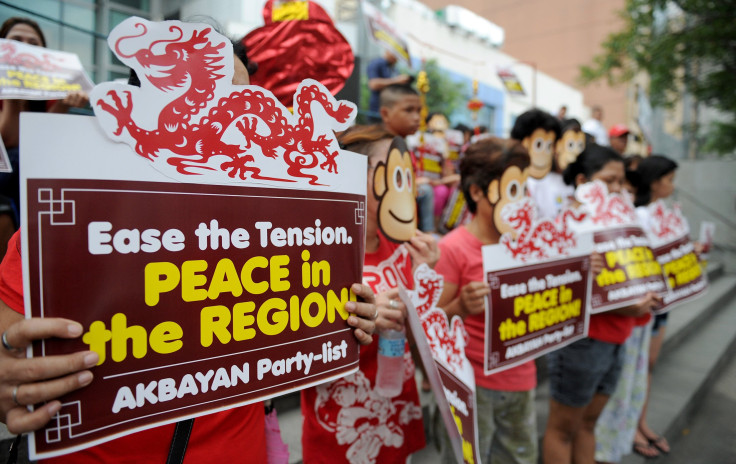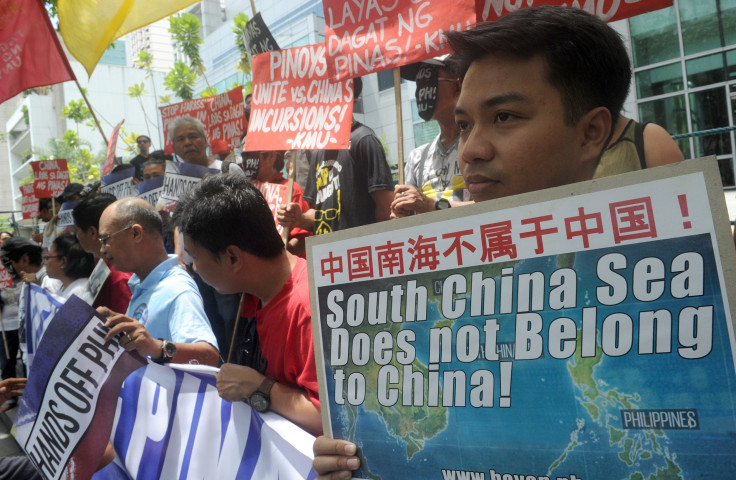South China Sea: Chinese Media Accuse US Of Gunboat Diplomacy, Warn Of Heightened Tension

SHANGHAI — The tension over China's reclamation of islands in disputed waters in the South China Sea has taken another twist, with China's reported deployment of missiles on Woody Island in the Paracel archipelago.
Throughout the controversy over the islands, China has said that the structures it has been building, including lighthouses and runways, are for civilian and humanitarian use, and will help with navigation and sea rescues in the disputed waters. Beijing also pledged not to militarize the area during the summit meeting between Chinese President Xi Jinping and U.S. President Barack Obama in Washington last September.

But analysts have said the runways built by Beijing on the reclaimed islands would be big enough for military aircraft to use in the event of any clashes with its rivals for sovereignty in the region, which include the Philippines and Vietnam. And Chinese analysts and official media have also warned on several occasions that what the U.S. describes as Freedom of Navigation Operations (FONOPS) in the region — U.S. military ships and aircraft have sailed and flown close to the islands several times in recent months — could give China no choice but to militarize the islands. China has expressed particular anger at the most recent U.S. mission in the region, saying it was particularly close to the islands and highly provocative.
Now an increasingly assertive Chinese regime appears to have taken further action to show its displeasure — with the reported missile deployment on Woody Island, one of the original, natural islands in the disputed Paracel chain, which China has occupied for some years and on which it was reported to have deployed military aircraft last October.
Chinese media, while not referring specifically to any deployments, reiterated China’s anger over the issue Wednesday. Yin Chengde, a former counselor of the Chinese embassy in the U.S., described the U.S. FONOPS missions as “gunboat diplomacy” in a commentary in the Global Times, a hawkish tabloid published by the official People’s Daily. Yin said the U.S. insistence on such missions was “unreasonable and arrogant” and was using them as an excuse to challenge China’s sovereignty as part of a plan to "contain China."
He said China had never triggered an incident in the South China Sea, and would “pursue the path of peaceful development and will never seek hegemony.” But he said Beijing “can detain and expel the intrusive warships if necessary,” adding that it would be “unwise for the White House to continue its provocations.”

China has also reacted angrily to comments by Australian Foreign Minister Julie Bishop, who said before a visit to Beijing Wednesday that she would be asking her Chinese counterpart Wang Yi whether other countries could access facilities on the disputed islands held by China — since Beijing claimed these facilities were "public goods." She also called on China to “act in a way that contributes to regional and global stability.”
Another Global Times commentary accused Bishop of “blatant criticism,” and of implying that China was breaching international law. It said Bishop’s comments showed she lacked "any real commitment" to relations with China, with which Australia signed a free trade agreement late last year, and was guilty of "hypocrisy."
The Global Times' criticisms were timed to coincide with the just concluded meeting between Obama and leaders of the Association of Southeast Asian Nations (ASEAN) in California, at which the South China Sea issue was a major focus. While the U.S. has said it has no vested interests in the region, the White House said ahead of the meeting that any dispute between countries in the South China Sea should be solved peacefully, and not by a big nation “bullying” smaller neighbors.
Analysts say China sees such comments as further evidence of U.S. interference, and Chinese media said this week that the ASEAN forum was not the right place to discuss the South China Sea issue.
Willy Lam, a specialist on Chinese politics at the Chinese University of Hong Kong, told International Business Times that “the deployment of missiles on Woody Island and other reclaimed islands has been long planned.” However, he said the revelation of the deployment at this moment may have been designed as “propaganda warfare against the FONOPS developments," and as “a show of force to scare the ASEAN members, who are dependent on China economically, [at a time] when the U.S. is trying to rally ASEAN members against China.”

Lam said the timing of Beijing’s move might also be linked to Chinese anger at the planned deployment of the U.S.-developed Terminal High Altitude Area Defense (THAAD) missile defense system in South Korea, in response to North Korea’s recent apparent nuclear test in January and missile launch earlier this month. Chinese experts have warned that such a system would cover parts of China and would upset the region’s military balance and raise tensions. In two editorials published Tuesday and Wednesday, the Global Times said the THAAD and other military deployments in South Korea were “aimed at China,” and said China should voice its objection and install "more defensive missiles in Northeast Asia and take the highest level precautions against the THAAD system," in order to "maintain deterrence ... [and] make other sides think twice before they act.”
It warned that recent development made a war on the Korean peninsula more likely, and said China should "make preparations for the worst-case scenario," and deploy more military strength in its northeast, which borders North Korea. It called on the U.S. and North Korea to resolve their differences over the nuclear issue by negotiations, but it said that public opinion would support Chinese military action in the event of a war on the peninsula.
China has said it supports further sanctions against North Korea, but has refused to cut off relations with the country, a traditional ally. And the Global Times, which does not always reflect the views of China's policymakers, but is seen to have links to conservative elements within the establishment, added, “China is strongly against any turmoil or war on the Korean peninsula, but once it happens we will not be scared to get involved."
© Copyright IBTimes 2024. All rights reserved.












